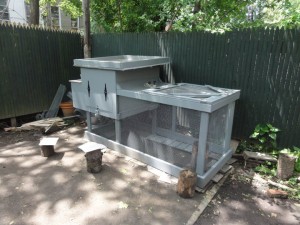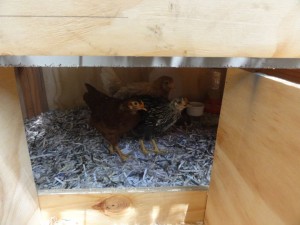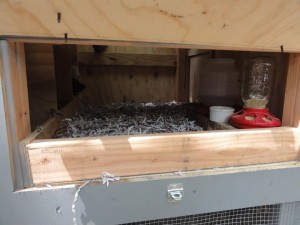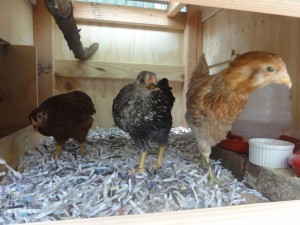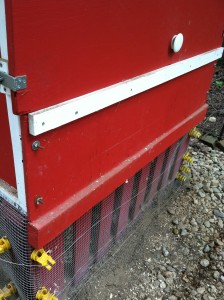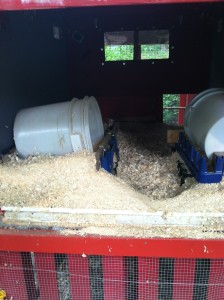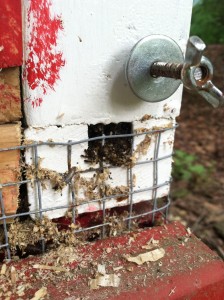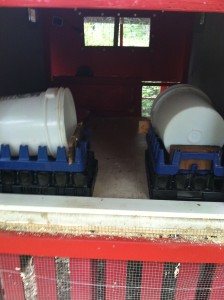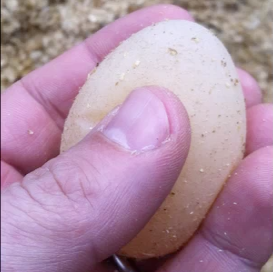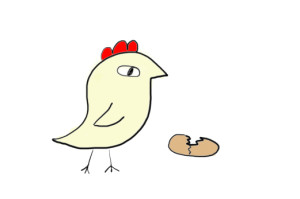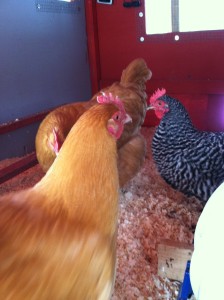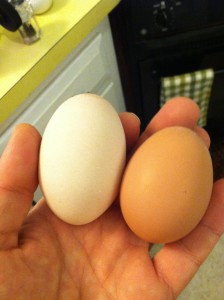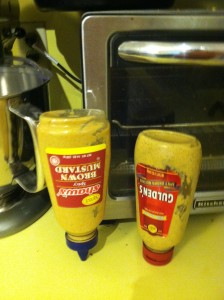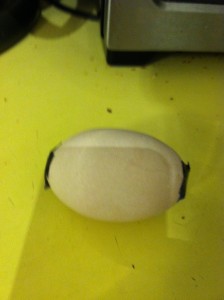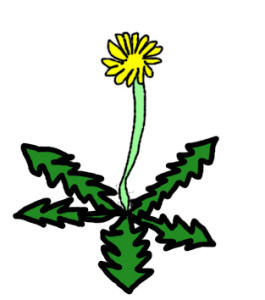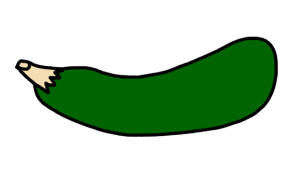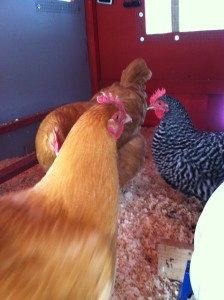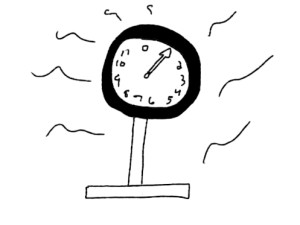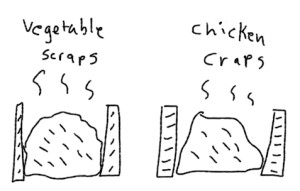Brooklyn Chickens
Friday, August 2nd, 2013In spite of how often I seem to find ways to make mistakes, I sometimes feel like I have it easy with this whole chicken thing. We’ve got a ton of space to let them run around. We live 5 minutes from a feed store, so whenever I need anything, I can just nip over for it. No one lives in the house closest to us, so they can’t be bothered by noise. It could be a lot worse. If I find myself thinking some chicken-related task is a drag, I remind myself that I could be doing this in the city, and it would be a lot harder there. Then I think, “Well, how do people do this in the city, then?” My friend Scott lives in Brooklyn and has chickens, so I decided to ask him about it. Is that city enough for you? You got a problem with Brooklyn?
The big thing I was curious about was predators in the city. I’m a little obsessed with making sure nothing can get into our coop besides chickens. That’s probably a good thing, since so many things that like to eat chickens live where we are. When I think about times I’ve lived in cities, though, I start to think about rats, and how I am so much happier worrying about fisher cats and possums and raccoons than rats. Rats can pretty much get into whatever they want to, no matter what you do to stop them. I was once on a kick where I read a bunch of books about various types of vermin, and the rat one really kind of scarred me. I know what they’re capable of. So I asked Scott what predators he had to worry about. His answer kind of surprised me. Rats aren’t really the issue. Feral cats are. I had completely forgotten how many feral cats are kicking around Brooklyn, even though we have one as a pet, which we rescued when she was a kitten. Because of this feral cat situation, Scott has made the wise decision to not let his chickens out to free range in the yard. There are some rodents around, but the cats are probably the ones to watch. His own cat even once snuck into the coop and experienced a brief moment of what Scott described as being in the Thunderdome before beating a hasty retreat. I think street cats might not back down so easily. His coop setup is quite nice, and the chickens have plenty of room to run. They’re happy and safe inside.
It’s been a while since I lived in Brooklyn, but I never remembered seeing any feed stores around in my travels. It wouldn’t surprise me if they were there, since you can pretty much find whatever you need if you look hard enough, but I asked how Scott handled the feed issue. He said they used to just track down an Agway any time they left town, but they’ve recently found a guy who raises his own chickens and sells feed out of his garage right in the city. Of course, his garage is protected by security cameras, barbed wire, and a gate with a buzzer, so you might think he’s selling something other than chicken food. Maybe he is, but you have to applaud his industriousness for finding new markets. It’s certainly easier than having to go out of town any time you need to stock up on feed, intimidating though it may seem.
I suppose Scott could just get chicken bedding from this guy also, but why bother when the New York Times is printed with soy ink? He just shreds some copies of the Grey Lady, tosses it in the coop, and that’s all there is to it. Food for the mind, bedding for the other end. It’s compostable, and maybe the chickens will learn something. It almost makes me want to subscribe just to do this too. I really like this idea. He keeps the paper on a good rotation, and so there are few problems with smells.
The question I was a little afraid to ask had to do with the ultimate fate of these birds. Not everyone is a weirdo chicken-hugging vegetarian like me, so I had prepared myself for a less than storybook ending (depending on what sorts of storybooks you read). He did say that once they stop laying eggs they will have outgrown their usefulness to him, as he is not running a chicken retirement home. However, he has a cousin in Vermont with a fruit tree that is a magnet for a certain type of bug, and these bugs are considered highly delicious by chickens. So when the time is right, they will be sent out to the Green Mountains to retire in bug eating bliss. It’s the rare case where sending your pet off to a farm in the country isn’t actually a euphemism.
There are a million stories in the chicken city, and this is just one of them. What I love about raising chickens is that there’s room for everyone to do things their own way, and so they do. Loads of people in New York have chickens now, and I bet plenty of them do things entirely differently from Scott. If I hear about others, I’ll let you know. In the meantime, I’ll think about how my own coop could probably qualify as a highly expensive studio apartment in a trendy Brooklyn neighborhood, and remind my chickens how good they have it.
(All photos from Scott’s Facebook page.)

